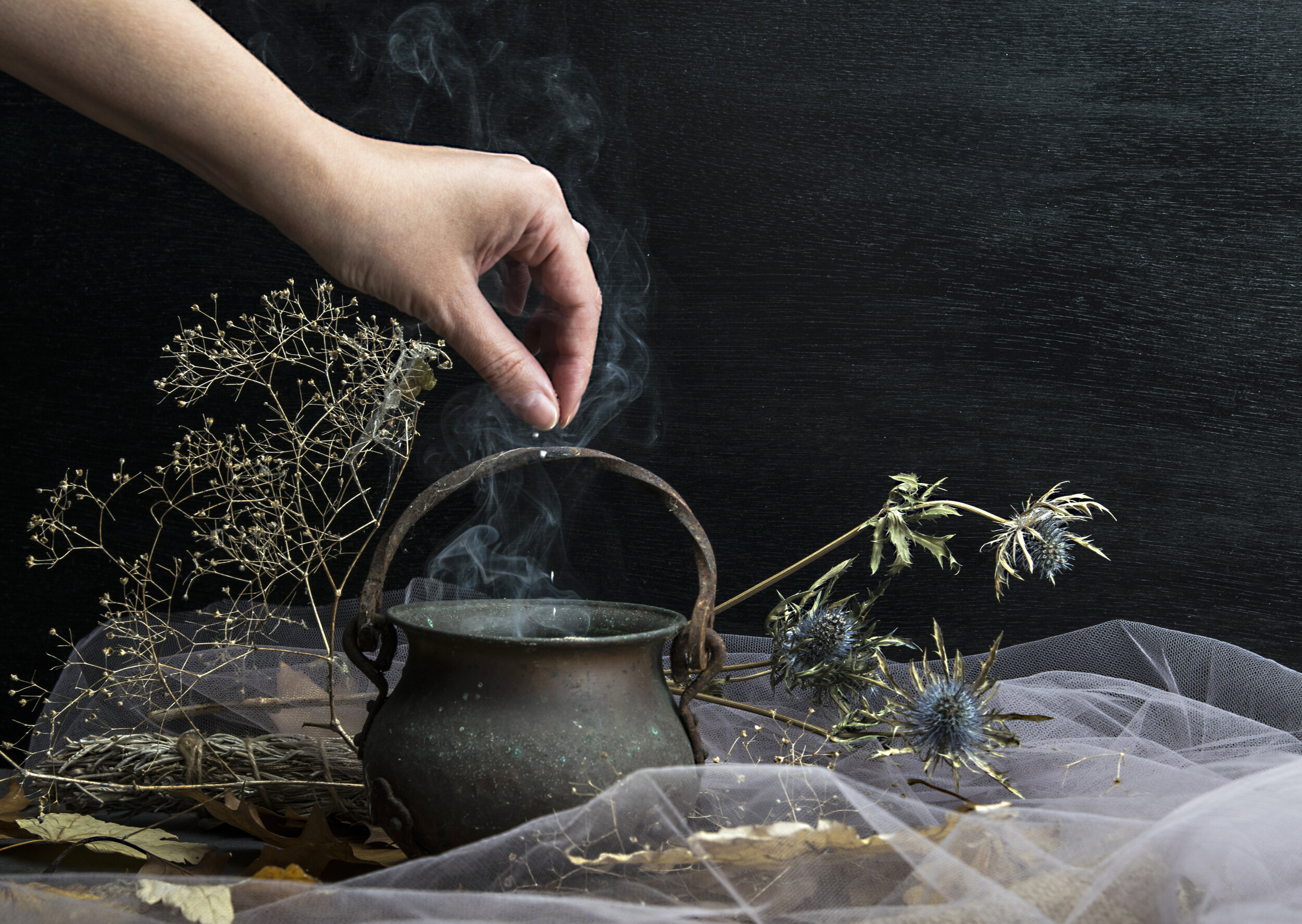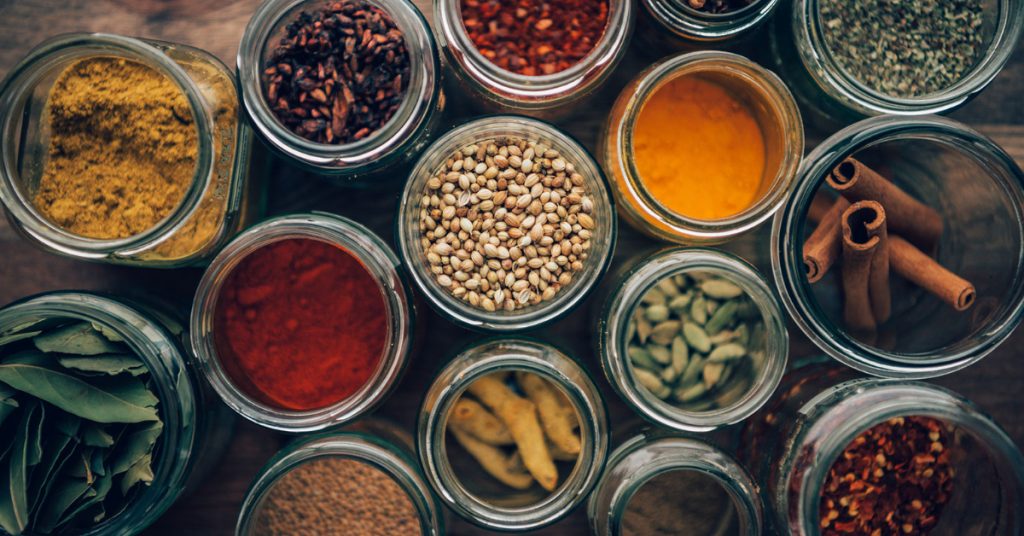Blog
The Magic of Herbs and Spices in Cooking
Herbs and spices have been an integral part of culinary traditions for centuries. They transform simple ingredients into unforgettable dishes, adding layers of flavor, aroma, and even health benefits. From the aromatic sweetness of cinnamon to the bold kick of cayenne pepper, these small but mighty ingredients are the secret to elevating any meal.
In this article, we’ll explore the magic of herbs and spices, how to use them effectively, and their incredible ability to enhance not only flavor but also nutrition. Let’s dive into the world of culinary alchemy and discover how these natural flavor enhancers can revolutionize your cooking.
1. Why Herbs and Spices Are Essential in Cooking
Herbs and spices are much more than just flavor boosters. They play a pivotal role in every cuisine across the globe for several reasons:
- Enhancing Flavor: They provide depth and complexity to your dishes, from subtle undertones to bold, spicy notes.
- Reducing the Need for Salt and Sugar: Using herbs and spices helps lower sodium and sugar intake while keeping meals flavorful.
- Boosting Health: Many herbs and spices, such as turmeric and ginger, have anti-inflammatory and antioxidant properties that support overall well-being.
- Cultural Significance: Herbs and spices tell stories of cultural identity and tradition, connecting us to global cuisines and histories.

2. Common Herbs and How to Use Them
Herbs are the leafy parts of plants, often used fresh or dried. Here are some common ones and tips on incorporating them into your cooking:
- Basil: Known for its sweet and slightly peppery flavor, basil is a staple in Italian cuisine. Use it in pesto, pasta sauces, or as a fresh garnish on pizza.
- Cilantro (Coriander Leaves): With its bright, citrusy flavor, cilantro is perfect for salsas, curries, and soups. Add it at the end of cooking for maximum freshness.
- Thyme: A versatile herb with earthy notes, thyme pairs beautifully with roasted vegetables, poultry, and stews.
- Rosemary: Its pine-like aroma makes it ideal for seasoning meats, potatoes, and bread. Use sparingly, as its flavor can be strong.
- Parsley: A mild herb that brightens any dish, parsley is great for salads, dressings, and as a garnish for soups and stews.
3. Popular Spices and Their Uses
Spices come from seeds, roots, bark, or fruits of plants and bring bold flavors to your dishes. Here are some kitchen favorites:
- Cumin: A warm, earthy spice often used in Middle Eastern and Indian cuisines. Add it to curries, chili, or roasted vegetables.
- Turmeric: Known for its golden hue and anti-inflammatory properties, turmeric is excellent in rice dishes, soups, and smoothies.
- Cinnamon: Sweet and aromatic, cinnamon is versatile in both savory and sweet dishes like baked goods, oatmeal, and Moroccan tagines.
- Paprika: This spice adds a smoky, sweet, or hot flavor depending on the variety. It’s perfect for seasoning meats, stews, and roasted vegetables.
- Cardamom: With its unique, floral flavor, cardamom enhances both sweet dishes like desserts and savory dishes like curries.
4. Tips for Cooking with Herbs and Spices
Using herbs and spices effectively can take your dishes from good to extraordinary. Follow these tips to unlock their full potential:
- Know When to Add Them:
- Add dried herbs and spices early in the cooking process to allow their flavors to meld.
- Add fresh herbs at the end for a burst of freshness.
- Toast Your Spices: Toasting whole spices in a dry pan before grinding releases their oils and enhances their flavor.
- Start Small: Spices can be potent, so start with a small amount and adjust to taste.
- Pair Wisely: Certain spices complement each other naturally. For example, cinnamon and nutmeg work well together in baking, while cumin and coriander are staples in many savory dishes.
- Store Properly: Keep herbs and spices in a cool, dark place in airtight containers to preserve their potency.
5. Health Benefits of Herbs and Spices
Beyond their culinary uses, many herbs and spices have remarkable health benefits:
- Turmeric: Contains curcumin, which has powerful anti-inflammatory and antioxidant properties.
- Ginger: Helps with digestion and reduces nausea and muscle soreness.
- Garlic: Boosts the immune system and has heart-healthy properties.
- Cinnamon: Can help regulate blood sugar levels and has antibacterial properties.
- Parsley: Rich in vitamin K, which supports bone health.
Incorporating a variety of herbs and spices into your meals not only enhances flavor but also promotes a healthier lifestyle.
6. Global Inspirations: Spices Around the World
Each region has its own unique spice blends and traditions. Exploring these can expand your culinary horizons:
- Indian Garam Masala: A blend of spices like cumin, coriander, and cardamom used in curries and stews.
- Middle Eastern Za’atar: A mix of thyme, sumac, and sesame seeds, perfect for sprinkling on flatbreads or salads.
- Chinese Five Spice: A balance of sweet, sour, bitter, and spicy flavors, often used in stir-fries and roasted meats.
- Mexican Chili Powder: A blend of ground chilies, garlic, and oregano, ideal for tacos and chili con carne.
Experimenting with these blends can bring exciting new flavors to your table.
:max_bytes(150000):strip_icc()/NMD-9-of-the-World_s-Healthiest-Spices-_-Herbs-You-Should-Be-Eating-3x2-1-2000-3f4b86cbc3f34da0a2998cc7f877cb54.jpg)
7. Easy Recipes to Highlight Herbs and Spices
Here are a couple of simple recipes to showcase the magic of herbs and spices:
Herb-Infused Olive Oil
Use this flavorful oil for dipping bread, drizzling on salads, or tossing with pasta.
- Ingredients:
- 1 cup olive oil
- 2 sprigs rosemary
- 2 sprigs thyme
- 1 clove garlic
- Instructions:
- Warm the olive oil with the herbs and garlic over low heat.
- Let it cool, strain, and store in a bottle.
Spiced Lentil Soup
A hearty and aromatic dish perfect for chilly evenings.
- Ingredients:
- 1 cup red lentils
- 1 onion, diced
- 2 carrots, chopped
- 1 tsp cumin
- 1 tsp turmeric
- 1/2 tsp paprika
- 4 cups vegetable broth
- Instructions:
- Sauté onion and carrots in olive oil.
- Add spices and cook until fragrant.
- Stir in lentils and broth, simmering until the lentils are soft.
8. Bringing Magic to Your Kitchen
Herbs and spices are the soul of any dish, transforming simple ingredients into something extraordinary. By experimenting with combinations, exploring global flavors, and understanding their health benefits, you can unlock the true potential of your cooking.
The next time you step into your kitchen, let the magic of herbs and spices guide you. From savory stews to sweet desserts, there’s no limit to the delicious possibilities they offer.
So, grab your spice rack, embrace your creativity, and start cooking flavorful dishes that will delight your taste buds and nourish your soul.


